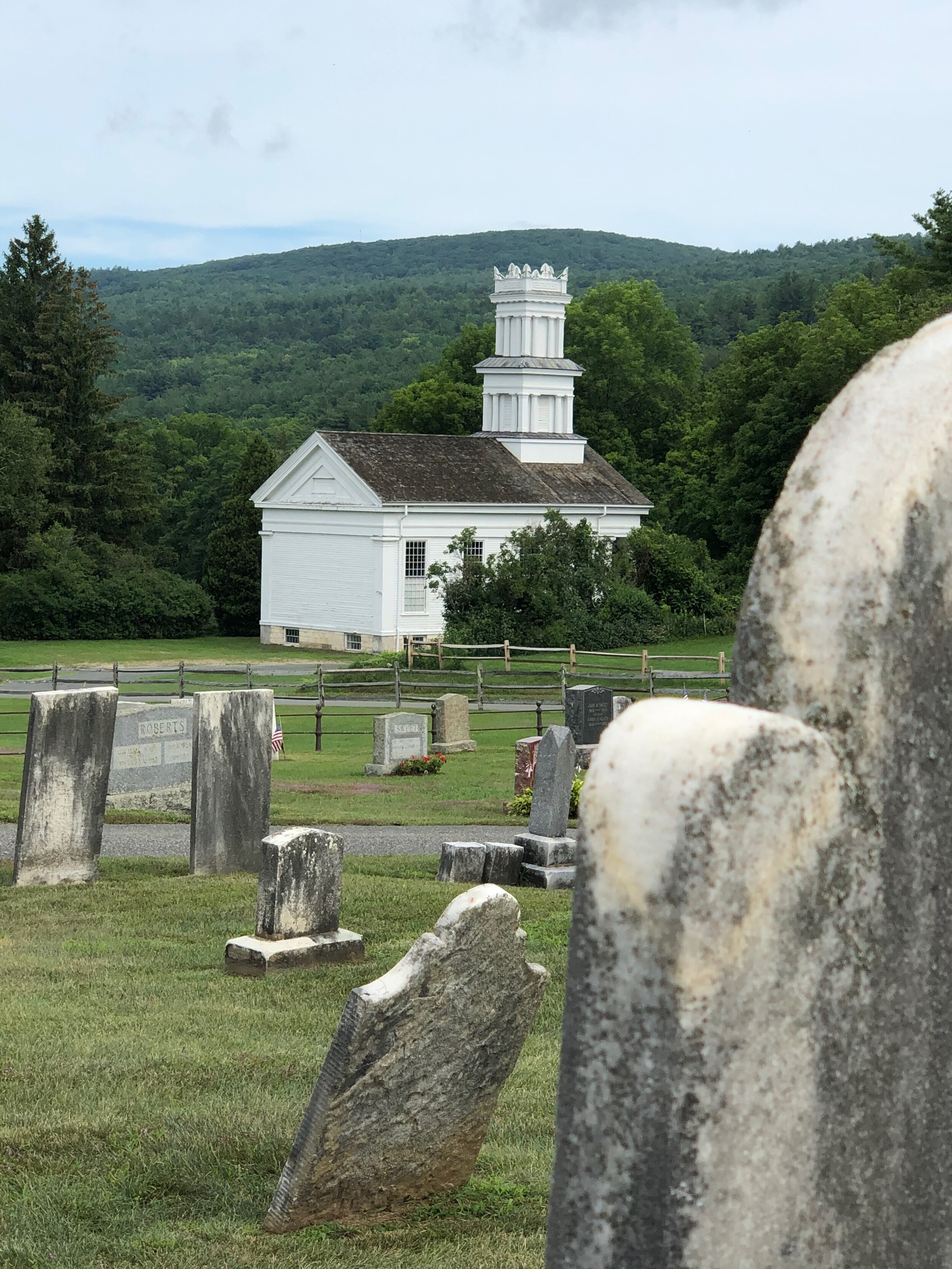A Reader’s Walk Among the Gravestones of Early New England
The graveyards of old New England are irresistibly fascinating. They appeal to the eye and the imagination, with their dignified stones standing or leaning in gray ranks, quiet abiding witnesses to the long histories of their towns. They provide a trove of useful information for historians, genealogists, and students of religious art. They also draw in visitors who find spiritual or philosophical comfort in contemplating lives and deaths from centuries ago, memorialized in granite or marble, slate or sandstone.
For me, these graveyards hold an absorbing store of poetic messages from early New Englanders. I started collecting interesting epitaphs in these burial grounds when I was a kid, and through the years I keep asking myself “where did these verses come from, and how did they get on these gravestones?”
Trying to satisfy my curiosity on those two questions has led me on a personal journey of heart and mind into the literary and spiritual world these people inhabited. Each time I stand in front of a gravestone and read, I hear the sadness, grief, hope, joy, and faith of these ordinary people who lived and died two centuries ago and more. The course of my studies has taken me down pleasantly unexpected by-ways, bringing me into the company of a marvelous assemblage of long-forgotten writers with surprisingly fascinating biographies, and opening a door into vanished but once-bustling scenes of commerce and competition in publishing and stone-carving.
I invite you to read and contemplate the words these people chose; admire the hand of the individuals who selected or composed these verses, recalling always that they were intended to be read by posterity – by us; and reflect upon what these very personal choices tell us about early New Englanders’ changing and often conflicted attitudes towards life, death, and eternity.
Thus shall our mouldering Members Teach
What now our senses Learn.
For dust and ashes Loudest preach
Man’s Infinite Concern
– Isaac Watts
